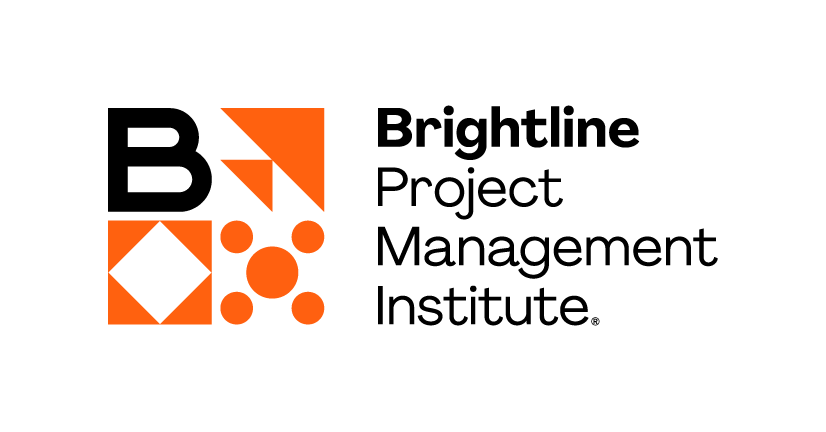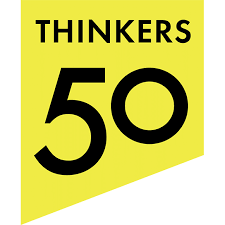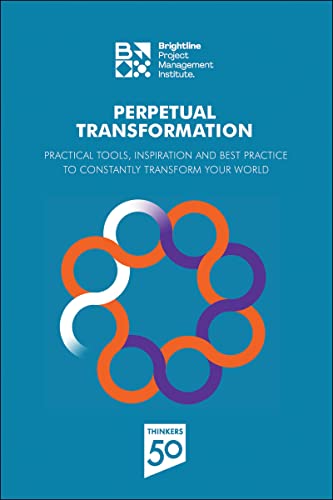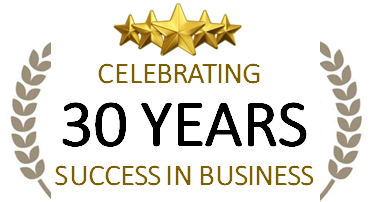Making Perpetual Transformation
the Norm
by Susie Kennedy
As well as dealing with rapidly evolving political, economic, technological and environmental changes, organisations are experiencing unprecedented internal and external pressures from multiple stakeholders. Here we look at some of the forces creating the need for continuous evolution and what organisations can do to make perpetual transformation the norm.


Forces for Change
 Shareholders, customers and employees are challenging leadership power and forcing organisations to change. Executive boards can no longer concern themselves with just shareholder returns as shareholder activism increases in environmental, social, and corporate governance issues (ESG). In June 2021, activists reached what is regarded as a watershed moment as a small investment firm called Engine No.1 had a significant victory gaining three seats on the board of ExxonMobil in a bid to speed up the company’s energy transition. In the same month, investors used activism to drive gender equality by requesting Microsoft publish an annual transparency report following misconduct allegations against its founder Bill Gates. The growth of social movements such as Black Lives Matter and #MeToo is increasingly likely to be on the activist agenda as social unrest creates economic risk.
Shareholders, customers and employees are challenging leadership power and forcing organisations to change. Executive boards can no longer concern themselves with just shareholder returns as shareholder activism increases in environmental, social, and corporate governance issues (ESG). In June 2021, activists reached what is regarded as a watershed moment as a small investment firm called Engine No.1 had a significant victory gaining three seats on the board of ExxonMobil in a bid to speed up the company’s energy transition. In the same month, investors used activism to drive gender equality by requesting Microsoft publish an annual transparency report following misconduct allegations against its founder Bill Gates. The growth of social movements such as Black Lives Matter and #MeToo is increasingly likely to be on the activist agenda as social unrest creates economic risk.
Customer expectations and needs are rapidly changing. According to KPMG’s Future of Retail Report in January 2021, customers now have greater power in the retail relationship. On shifting to online shopping, they have exponentially increased their choice, making it challenging to retain them. Customers want businesses to have a purpose and to stand for something in line with their values and expectations. They expect companies to use social media, artificial intelligence and other technologies to engage and connect with them, giving immediate personalised experiences. They expect this same level of superior experience from any business. Research by Salesforce found that 80% of customers now consider the experience a company provides as important as its products and services.
Employee activism is on the rise, especially among millennials. A US study found that 4 in 10 employees have spoken up to support or criticise an employer’s actions over workplace and societal issues. For example, on 1 November 2018, some 20,000 staff at Google offices worldwide started walkouts protesting the company’s treatment of women. They demanded changes in how the firm dealt with sexual misconduct allegations following the New York Times report that Google paid a high-profile executive $90m after knowing of a sexual misconduct allegation against him. On 9 June 2021, more than 60 former staff at the UK’s largest craft brewer, BrewDog, posted an open letter on Twitter to the company accusing it of fostering a toxic culture of fear and misogyny, prompting its Chief Executive to apologise. Open letters and other forms of activism urging leadership to listen have been used by employees of many companies, including Wayfair, Amazon, Adidas, Facebook, and Microsoft, to name a few.
The context in which organisations exist is perpetually changing, so organisations must evolve and be permanently “switched on” to transformation. Leaders can focus on three key areas to help achieve this:
- Managing the stakeholder relationships
- Reflecting on organisational strengths
- Creating a culture that allows perpetual transformation to thrive.
Managing Stakeholder Relationships
When boards increase engagement with shareholders, both parties can benefit. Higher levels of engagement increase trust and lead to a more open flow of information which boards can use to be proactive in making leadership decisions. Boards should be pragmatic and recognise activists can be a valuable source of knowledge. London Business School Professor Ioannis Ioannou suggests boards should be unafraid of ESG challenges as they may find activist support for their strategy. Similarly, former Chair and CEO of Vanguard, Bill Mc Nabb (HBR, July-Aug 2021), says boards should stay open and listen closely to what activists say even if they don’t like it. Better still, board members should step out of their comfort zone and think like an activist.
Managing customer expectations means continuously providing the best possible experience so they will return. Organisations require information about their customer’s expectations, needs and experiences, and they need powerful internal systems and processes to deliver the desired service. Success means taking advantage of the latest technologies and investing in digital transformation not as a one-off initiative but as a continuous improvement process in how the business operates. Organisations cannot remain switched on to continuous transformation if they do not have the supporting technology and internal processes.
There are right ways and wrong ways of managing the relationship with employee activists. The best methods involve getting closer to employees and engaging them in continuous transformation efforts. However, Professor Megan Reitz of Hult International Business School says that the more senior people are, the more likely they will fall into the optimism bubble, underestimating how activists feel. Consequently, CEOs may dismiss activism for rebellion and ignore growing discontent. For a more successful outcome, leaders should listen deeply to employees using channels that allow honest feedback about the organisational mood concerning the “big issues”. Equipped with this knowledge, boards can discuss how these issues will impact the values of employees, customers and shareholders, allowing them to consider the consequences of their leadership decisions.
Reflecting on Organisational Strengths
The notion of maintaining perpetual transformation can be daunting, but it is certainly possible considering the incredible achievements of organisations during the Covid-19 pandemic. For example, on 19 March 2020, Pfizer’s CEO, Alberta Bourla, challenged everyone at Pfizer to “make the impossible possible” by developing a vaccine ideally within six months, certainly by the end of the year, which they did. He reflects their success was due to an extraordinary team effort and a can-do, mission-driven culture that will drive future innovation to new heights. Bourla says next time someone says something is impossible, he expects peers to say, “Look at what the Covid-19 vaccine group accomplished. If they could do that, we can do this.”
Routinely reminding the organisation of its strengths helps to maintain the motivation and curiosity necessary for continuous evolution. For example, our research into leadership lessons from the Covid crisis showed UK Local Government senior managers had high levels of resilience and resourcefulness and led with compassion. Their operational teams were adaptable and flexible, and because managers believed it was better to ask for forgiveness than wait for permission, innovations happened quickly. As they moved beyond the crisis to business as usual, they found it helpful to remember what they had achieved to avoid slipping back to old ways.
Creating a Culture for Perpetual Transformation
The role of a leader is to create the conditions that enable the organisation to adapt continually in a rapidly changing environment. Creating the appropriate culture involves addressing mindsets and management practices, including
- Cultivating curious mindsets
- Using a common approach to managing transformation
- Building transformation teams.
Curiosity drives us to explore and pursue new experiences. It enables us to build knowledge, develop intellect, grow relationships and creative capability. Therefore, it is essential to the success of a continuously evolving organisation as it brings significant improvements in innovation, learning, decision-making, performance, problem-solving, teamworking, communication and well-being. According to Professor Todd Kashdan at George Mason University, people express curiosity in different ways across five dimensions. Individuals can use our Curio-5 assessment tool to measure their preferences across these dimensions and learn how to increase curiosity bandwidth. Leaders can take practical steps to cultivate curious mindsets in the workplace, including
- Directly encouraging curiosity by asking simple questions such as “What are you curious about today?”
- Role modelling by embracing new experiences, asking questions, challenging thinking, being open, relaxed and playful!
- Encouraging people to think deeper and differently about challenges and opportunities they face.
- Helping teams to use better brainstorming and questioning to increase curiosity.
- Encouraging lifelong learning, inside and outside of work and a self-managed approach.
- Creating psychological safety where everyone feels comfortable speaking up with ideas, questions, concerns or mistakes.
The reported failure rate of large-scale change programs has been around 70 per cent over many years. Research by McKinsey indicates that organisations are more likely to be successful when they address mindsets and put in place dimensions that will enable sustainable execution. This includes using a disciplined, common approach to leading and implementing transformation, as change programmes with governance structures are at least six times more likely to succeed. A disciplined approach promotes a common language with a consistent methodology that speeds up decision-making and delivery. It creates energy and boosts confidence, providing a road map for planning and execution so that valuable time is not wasted on duplication or working out ways to plan and implement. Our 3-D Approach to Organisational Change is one such approach that integrates the discipline of project management (PMI) with the psychology of change in a structured process. Successful change is managed in three phases and is achieved by following steps for leading the change whilst managing multiple change projects and ensuring continuous communication throughout. The approach includes tools and assessments for each stage of the change process to enable planning and regular progress reviews by the transformation teams. Importantly it is a repeatable process used for continuous transformation throughout the organisation.
Successful implementation requires the discipline of attention of senior leaders to ongoing transformation and the discipline of execution by high-performing teams. McKinsey transformation metrics found that top-performing companies had over twenty per cent of their people involved in wide-scale transformation. Commitment from the top and ownership from the bottom is key to success. High ownership levels are created when setting up high-performing implementation teams by allowing time for team members to build relationships with each other. They can use a common methodology to get on with the planning process, starting with identifying their own team purpose and goals. Maersk Global HSSE Improvement successfully deployed a team of transformation coaches using KBAs 3D Approach to build global high-performing teams, in turn, responsible for driving a “Safety First” culture worldwide.
The above summarises some of the forces pressurising organisations to change, and tools leaders have at their disposal to create a culture for continuous transformation or ongoing evolution. Arguably there is nothing inherently new in the overall approaches to change management, but there is a step-change in the need to focus on managing stakeholder relationships, creating the right mindsets and using a disciplined approach widely, in order to make perpetual transformation the norm.
However, critical to the success of any transformation is the behaviour of leaders. A 2019 McKinsey report on transformation metrics suggests that leaders have significant influence over the success (or failure) of their company’s transformations. Research shows 86% of leaders claim to role model behavioural changes, yet only 53% of the people who report to them agree. So it is the leader’s primary responsibility to routinely gain good feedback about their impact and ensure they espouse the behaviour changes they seek of others. In the words of Peter Drucker, “You cannot manage other people unless you manage yourself first.”
About the author
Susie Kennedy is senior partner of KBA Solutions Limited which she founded in 1993. KBA specialises in change leadership consulting and executive development. She has contributed to Thinkers50 publications, Transforming Beyond the Crisis and The Transformation Playbook. Susie is Programme Director for KBA’s Institute of Leadership and Management Strategic Leadership programme for senior managers, with programmes in the University of Cambridge, Premier Foods and nationally for UK Local Government at King’s College London.
References
- Bourla, A., (2021). The CEO of Pfizer on Developing a Vaccine in Record Time. Harvard Business Review. May-JuneEvans, J., (2021): Former BrewDog staff accuse company of ‘culture of fear’ and misogyny. Financial Times, 10 June.
- Forsdick, S., (2021). What’s next for activist shareholders after ExxonMobil victory?
- Raconteur. 18 June. [online] Available at: https://www.raconteur.net/corporate-social-responsibility/activist-shareholders-corporate-governance/ [Accessed 4 August 2021].
- Keller, S & Schaninger, B., (2020). How do we manage the change journey?[online] Available at: https://www.mckinsey.com/business-functions/organization/our-insights/how-do-we-manage-the-change-journey [Accessed 4 August 2021]
KPMG, (2021). Future of Retail. January. [online] Available at: https://assets.kpmg/content/dam/kpmg/xx/pdf/2021/01/future-of-retail.pdf [Accessed 4 August 2021] - Laczkowski,K., Tan, T., & Winter, M., (2019). Transformation Metrics: Defining Success. McKinsey Quarterly. October
- Lee, D., (2018). Google staff walk out over women’s treatment. BBC. 1 November. [online] Available at: https://www.bbc.co.uk/news/technology-46054202 [Accessed 4 August 2021]
- McNabb,B., Charan,R. & Carey, D., (2021) “Engaging with your Investors”. Harvard Business Review. July-Aug
- Reitz, M., Higgins, J. & Day-Duro, E. (2021). The Wrong Way to Respond to Employee Activism. Harvard Business Review. 26 February [online] Available at: https://hbr.org/2021/02/the-wrong-way-to-respond-to-employee-activism [Accessed 4 August 2021]
- Weinstein, G., de Wied, W. S. & Richter, P., (2019). The Road Ahead for Shareholder Activism. Harvard Law School Forum on Corporate Governance. 13 February. [online] Available at: https://corpgov.law.harvard.edu/2019/02/13/the-road-ahead-for-shareholder-activism/ [Accessed 4 August 2021]














